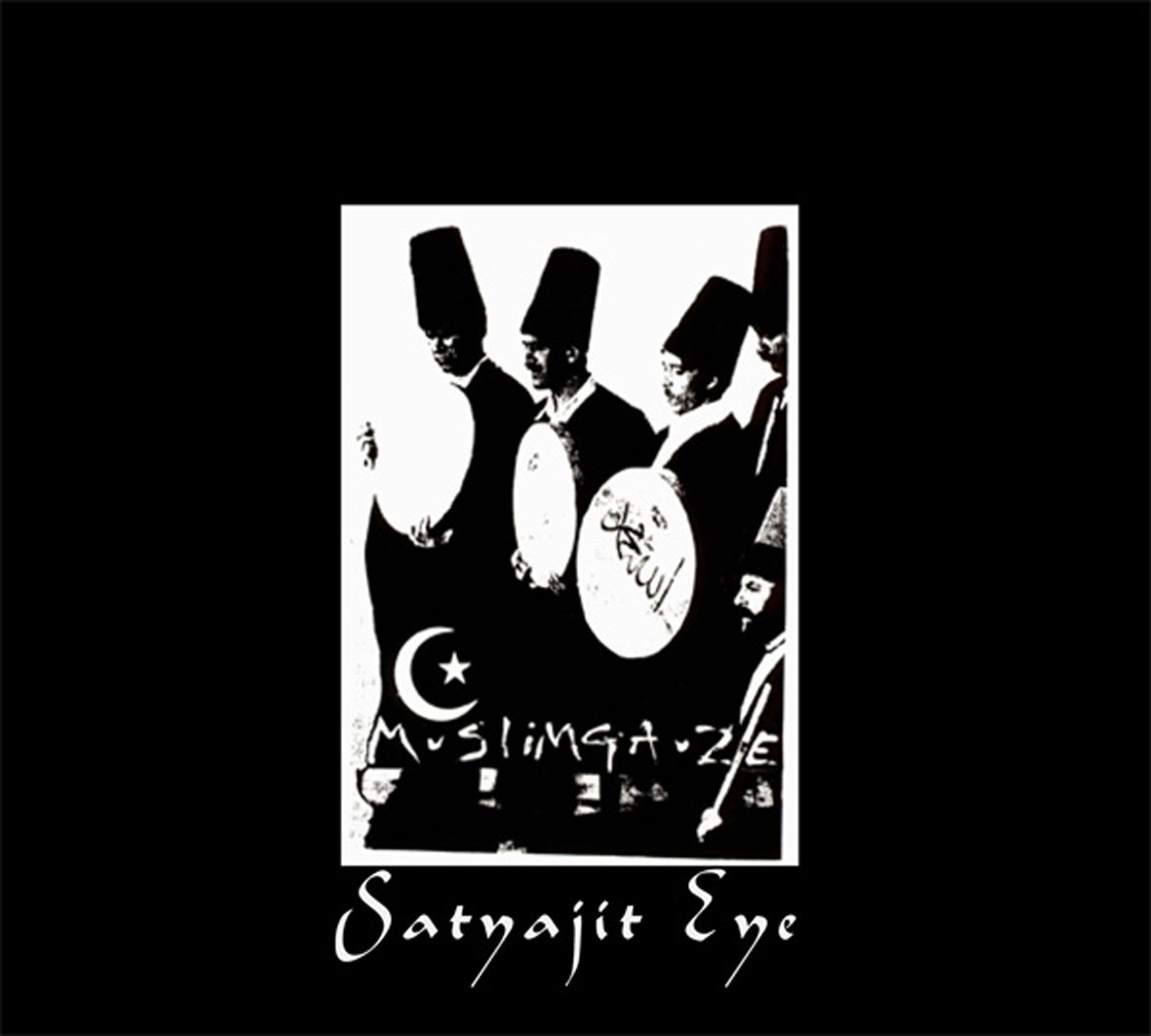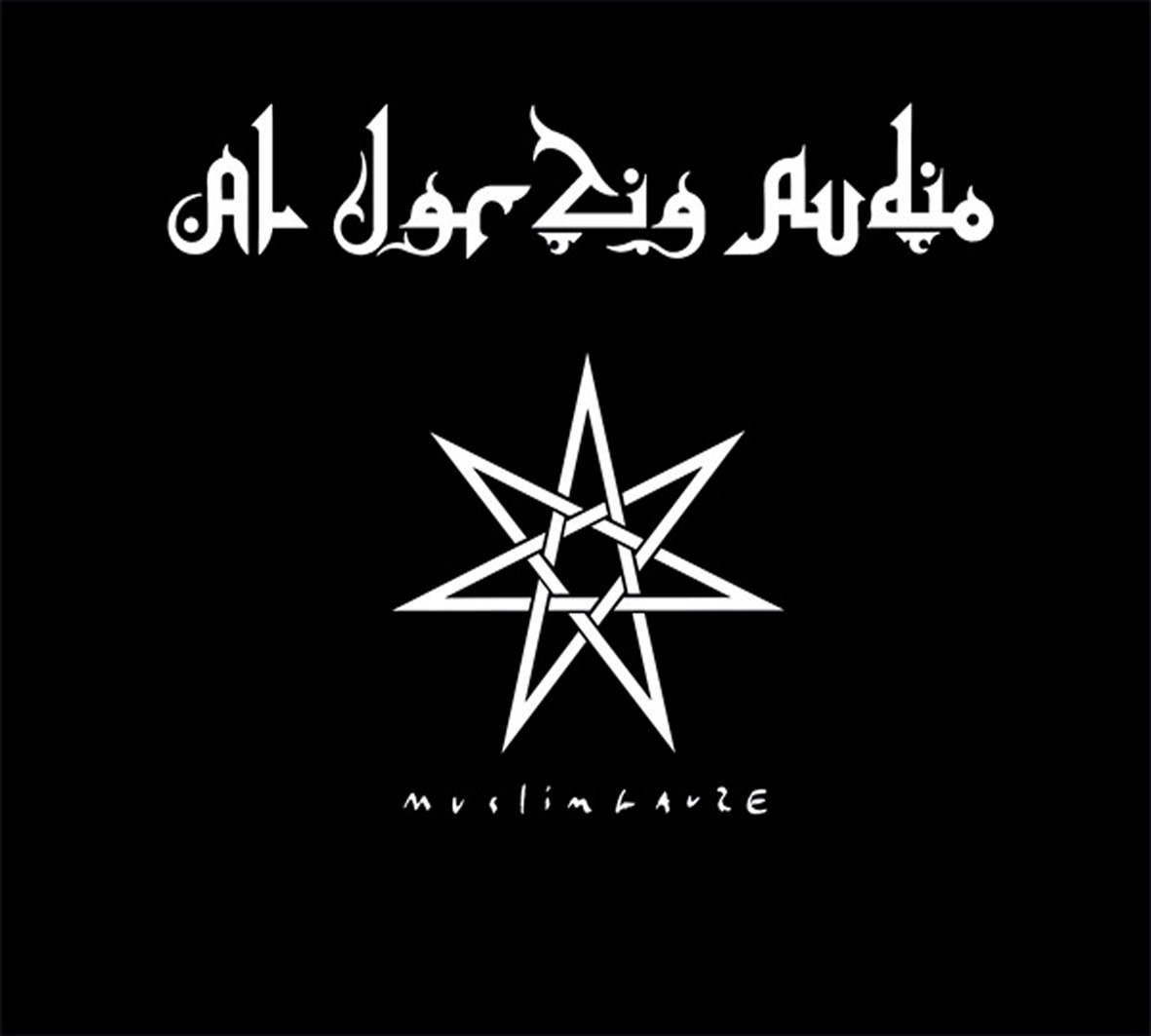 I have long felt that the best possible thing that could happen for Bryn Jones' legacy would be for someone to brutally pare down his out-of-control discography to just the essentials, but I am tragically powerless to stop the tide of fresh dispatches from his seemingly infinite backlog of unreleased material.  This latest pair of albums in Staalplaat's archive series are predictably a mixed bag, but the album of almost entirely unheard material (Al Jar Zia Audio) is dramatically better than the previously released (but hard-to-get) Satyajit Eye.  That is both tantalizing and exasperating, as it guarantees that there will be many more albums to come and that Muslimgauze fans will be sifting through them in (financially ruinous) search of scattered gems for years.
I have long felt that the best possible thing that could happen for Bryn Jones' legacy would be for someone to brutally pare down his out-of-control discography to just the essentials, but I am tragically powerless to stop the tide of fresh dispatches from his seemingly infinite backlog of unreleased material.  This latest pair of albums in Staalplaat's archive series are predictably a mixed bag, but the album of almost entirely unheard material (Al Jar Zia Audio) is dramatically better than the previously released (but hard-to-get) Satyajit Eye.  That is both tantalizing and exasperating, as it guarantees that there will be many more albums to come and that Muslimgauze fans will be sifting through them in (financially ruinous) search of scattered gems for years.
Satyajit Eye was originally released back in 1993, but under very bizarre circumstances: it was free, but it could only be obtained by cutting out part of the insert from Hamas Arc and mailing it to Staalplaat with a blank DAT.  Consequently, I sincerely doubt very many people ever got to hear it until very recently, when it finally surfaced as a bootleg.  That is presumably why Staalplaat is releasing this now, though I think they could have safely let this one slip through the cracks.  In theory, I like the idea of a secret, special album that is only available through symbolic sacrifice.  In reality, however, I intensely dislike the idea of defacing album art to get a dire collection of studio scraps in an annoying format, so I am glad I missed out the first time around (and again with the bootleg).
This "expanded" reissue (on CD, thankfully) is quite a bit different than the original release, but it is no less staggeringly inessential.  For one, roughly half of the album's more substantial pieces ("Zion Poison," "Taureg," and "Satyajit Eye") are already available in slightly different form on the better and much easier to procure Vote Hezbollah album.  Secondly, the three "new" tracks added to this reissue, all titled "Remix from Vote Hezbollah," are fairly ridiculous: they are all basically the same clattering percussion loop regurgitated in 5-minute, 9-minute, and 18-second variations (the duration being the only perceptible variation).  Finally, I am confounded as to why the opening "Amritsar" was shortened from 14:54 to 0:26.  I have not heard the original version, but the new, streamlined version is essentially a dull, artless snippet of someone speaking in Arabic (presumably).  I would have shortened it even further by completely deleting it from the album.
Aside from the unique circumstances of its release, the sole other noteworthy thing about Satyajit Eye is that it is apparently one of the first recorded instances of Jones' incorporation of Indian music.  While that is mildly interesting historically, there are plenty of more successful experiments in this direction on future releases and I would prefer to listen to them.  Otherwise, the lone justification for this album's existence seems to be the presence of "Dhobi" and "Caste," which do not seem to be available elsewhere, unless there are cannibalized versions lurking around under different names (not unlikely).  Both are admittedly likable, but both would be fairly forgettable pieces within the context of a "real" Muslimgauze album.  Ultimately, Satyajit Eye is not just for completists only–it is solely for only the most indiscriminate completists.

While Al Jar Zia Audio is not any kind of lost, career-defining masterpiece, it definitely sounds like one when compared to Satyajit Eye: from the very first seconds of "Ayatollah Dollar," this album seemed to explode from my speakers.  Part of that is due to the simple fact that Audio is mixed quite loudly, but it is also a very dense and vibrantly beat-driven affair from start to finish.  These are clearly songs that Bryn was keen to formally release at some point, as they sound very "finished," sculpted, and visceral.  That makes for a very fun and enjoyable album, as crafting inventive and unusual grooves is where Jones truly shined.
In fact, these 15 pieces made me amusingly think of Jones as a kind post-industrial, proto-Madlib, albeit one curiously obsessed with Middle Eastern politics and culture.  The significant difference, however, is that Madlib's Beat Konducta series wisely tends to limit his beat sketches to just one or two minutes, whereas Bryn had a definite tendency to sometimes overstay his welcome a bit.  Long durations suit Muslimgauze's darker, more dub-influenced pieces like "Najibi" (7:13) nicely, but some of the more hip-hop/breakbeat-themed pieces definitely feel like they are flogging one simple idea to death by the 4-minute mark.  That sounds worse than it is though: there are not many weak ideas here, its just that some strong ideas could have been better presented.  Of course, given that Jones has been deceased for more than a decade, it is hard to fault him much for failing to edit these songs more thoroughly than he did in preparation for this release.
Aside from an unwavering devotion to rhythm, there is not an especially strong theme holding these songs together.  That turns out not to be problematic at all though, as Al Jar Zia just feels like a fine singles collection rather than a thematically coherent whole.  In fact, this is a remarkably filler-free Muslimgauze effort: aside from the brief, abstract interlude of "All I Have is Sand," it is quite easy to imagine nearly all of these songs connecting with someone.  Given my somewhat dub-centric taste, I was especially fond of both the aforementioned "Najibi" and the weirdly clattering and insistent title piece.  My favorite moment of the album, however, is the brilliantly one-dimensional "Lost Iranian Tourist," which offers little more than a lurching, overloaded, and absolutely bludgeoning thump, which is all it needs to be spectacular.
The sole real flaw with Al Jar Zia Audio is that it is little more than a collection of cool beats.  Jones certainly enhances his grooves with all kinds of textural elements like snatches of dialogue, field recordings, and loops of sitars and other Eastern instrumentation, but there is no real development to be found anywhere.  Instead, these pieces all simply lock into their distinctly Muslimgauze-ian grooves and continue in that vein until Bryn decided to stop.  I am definitely used to that by now though and it seems like a reasonable concession to make in exchange for music this unique and propulsive.  Ultimately, this is a surprisingly strong and varied release that exceeds many of Jones' more formal, celebrated efforts.  Given its smorgasbord-like nature, it is probably unlikely to uniformly thrill anyone, but it is hard to imagine any seasoned Muslimgauze fans (or curious, aspiring ones) not finding at least a few songs worth getting excited about.
Samples:
 
Read More

